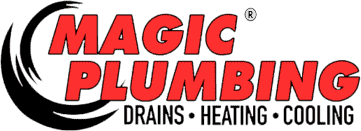When tackling any home project big or small, be sure to check whether a plumbing permit is needed. More often than not homeowners make the mistake of skipping this step, only to find their work is not up to city standard later on. It’s always better to be safe than sorry. Discover how simple it is to get a plumbing permit and keep your home renovations up to code.
What Type of Protection Does a Plumbing Permit Provide?
San Francisco, CA has its own set of building codes. And like any city, they must be followed. This is for your protection as a homeowner. Picture moving into a new home.
You have just got settled in, unpacked and moved your storage into the basement. A few weeks go by, and you notice a flood. The previous owner decided to try a DIY plumbing project without a permit.
The work was done incorrectly, and now you have to deal not only with paying to get it fixed but the loss of your personal belongings due to water damage. Permits are 100% there to stop this problem from happening. They ensure work is done to building code, and DIY enthusiasts get it done right.
When Will a Plumbing Permit be Needed?
Permits are needed when major alterations will take place, or when mechanical systems are being modified. Permits are the city’s way of knowing you have done the job correctly. Here is a short list of projects that require a plumbing permit.
● Structural additions
● Water heater replacement
● Drain line removal, repair or installation
● Changing out water supply lines
● Relocating existing plumbing
● Changing an unoccupied space in your home to an occupied space, like a garage or storage area
There are other instances where a plumbing permit will be needed. Check with your city or contact a plumber to find out if the job you want to have done will require one. Most likely even the smallest jobs will need a permit for work to begin.
How Much Will the Permit Cost?
For small residential jobs, permits are fairly inexpensive. They can range from $30 to $50. This can fluctuate from city to city so be sure to do your homework on what the cost is where you are living.
There are also additional costs for equipment such as adding in fixtures, wells, etc. You can always call a plumber to check what the cost will be in your area.
Getting your home project done correctly and on time is possible. All you have to do is make sure to obtain your plumbing permit prior to having your work started, and ensure you have it on site at all times for inspections. This will save you time, money, and many sleepless nights later on.


